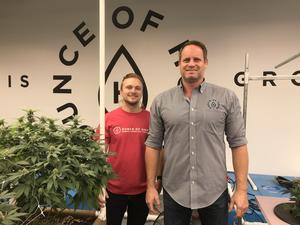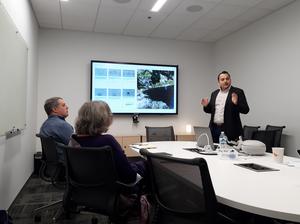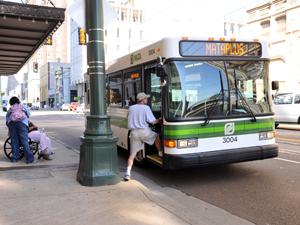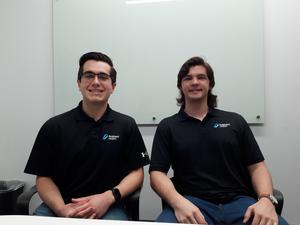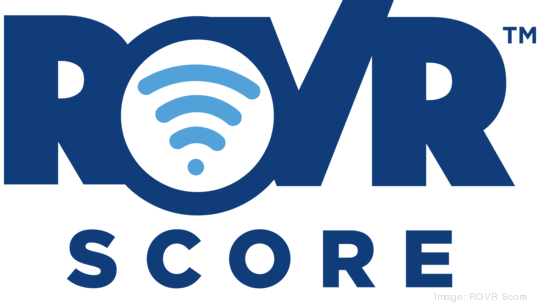
Recently, when I spoke to Scott Casey, his schedule was tight, and our meeting was far from the only one he had slated for the day.
“I’m not complaining, because I was looking forward to catching up to you, but I’ve got nine calls today; this is number three,” Casey said. “But, you know what? It’s all good stuff.”
Busy days aren’t uncommon for Casey, as his startup, ROVR Score, has bustled with activity since launching over the summer. The company is an independent evaluator of buildings’ Wi-Fi connectivity, and its primary clients are property owners and operators. Think of its service as akin to FICO scores or Carfax — only instead it’s providing a score based on the quality of internet connectivity.
Evaluating a building
ROVR Score does this by using a scoring algorithm that looks at three categories of data: network infrastructure, quality of Wi-Fi connectivity, and resident reviews with connectivity-related sentiments.
Properties then receive a score that places it in one of four levels — platinum, gold, silver, and verified — and ROVR Score continues to benchmark and monitor connectivity quality. The company will also suggest ways for clients to improve their connectivity, and several have been able to move up a level and improve their score.
Clients can have their buildings’ cellular connectivity quality evaluated by ROVR Score too, but Casey has found there isn’t as much of a need for this.
“We’re finding customers don’t really care too much about that,” he said. “They say, ‘We don't have problems with cellular in the building,’ and most owner and operators know that. They have feedback from their residents, and they know it based on their own experiences.”
There are clients who have used it, however, and the Wi-Fi service has proven to be popular.
Progress made, and lessons learned
Currently, ROVR Score works with around 75 properties in 33 markets. These properties are spread across four clients, and 65 of them come from one large company based in Raleigh. The startup also has commitments from prospective customers, and Casey estimates it will have an additional 100 properties under contract by the end of Q1 2022.
This does track behind Casey’s initial estimate, as in July, he told me he expected ROVR Score to be used across 1,000 different properties by the end of the year. But when I asked him about this in our recent conversation, he said the estimate had been based on a full twelve-month cycle, and that the fledgling startup had decided it was best not to do too much, too quickly.
“There were a lot of things that came up that we needed to work through,” he said. “And slowing down that process made all the sense in the world to us, so we could fine tune our product, and be really successful with the customers we had — as opposed to being out there, running really fast, trying to get as many as we can.”
After launching with $350,000 raised from friends and family, the company is in the midst of a $500,000 series A funding round, and currently has four full-time staffers, Casey included. It started by focusing on the student housing sector, but it’s expanding into multifamily housing, and is in discussions with members of the hospitality industry. Casey just doesn’t want to rush the process, especially after hotels were battered by the COVID-19 pandemic.
“People who have a lot of expertise in business on the hospitality side, kept saying, ‘This could be a really good product for the hotels,’” Casey said. “And we knew that already. But … hotels are coming out of a pretty dark place from a pandemic standpoint, so I didn’t want to try and engage with them when they don’t really have the resources. They’re just recovering.”
Casey’s goals for the company also aren’t exactly what they were in July. At the time, he said his plan was to start looking for a buyer in around five years. But the company is proving to have a lot of value, he said, and while an acquisition is still a possibility, it isn’t set in stone.
“An exit strategy like that should always be part of your plans,” he explained. “But we’re going to evaluate and talk as a team, consult our investors, and see what’s right for all of us. We may extend it, or somebody may come in and make an offer we can’t refuse."
